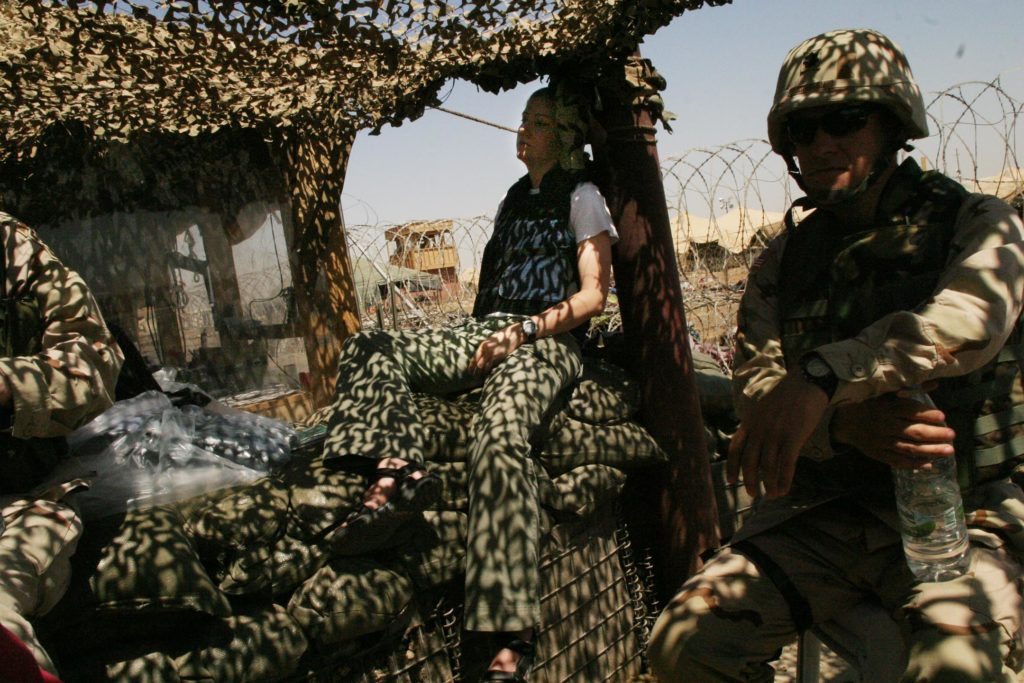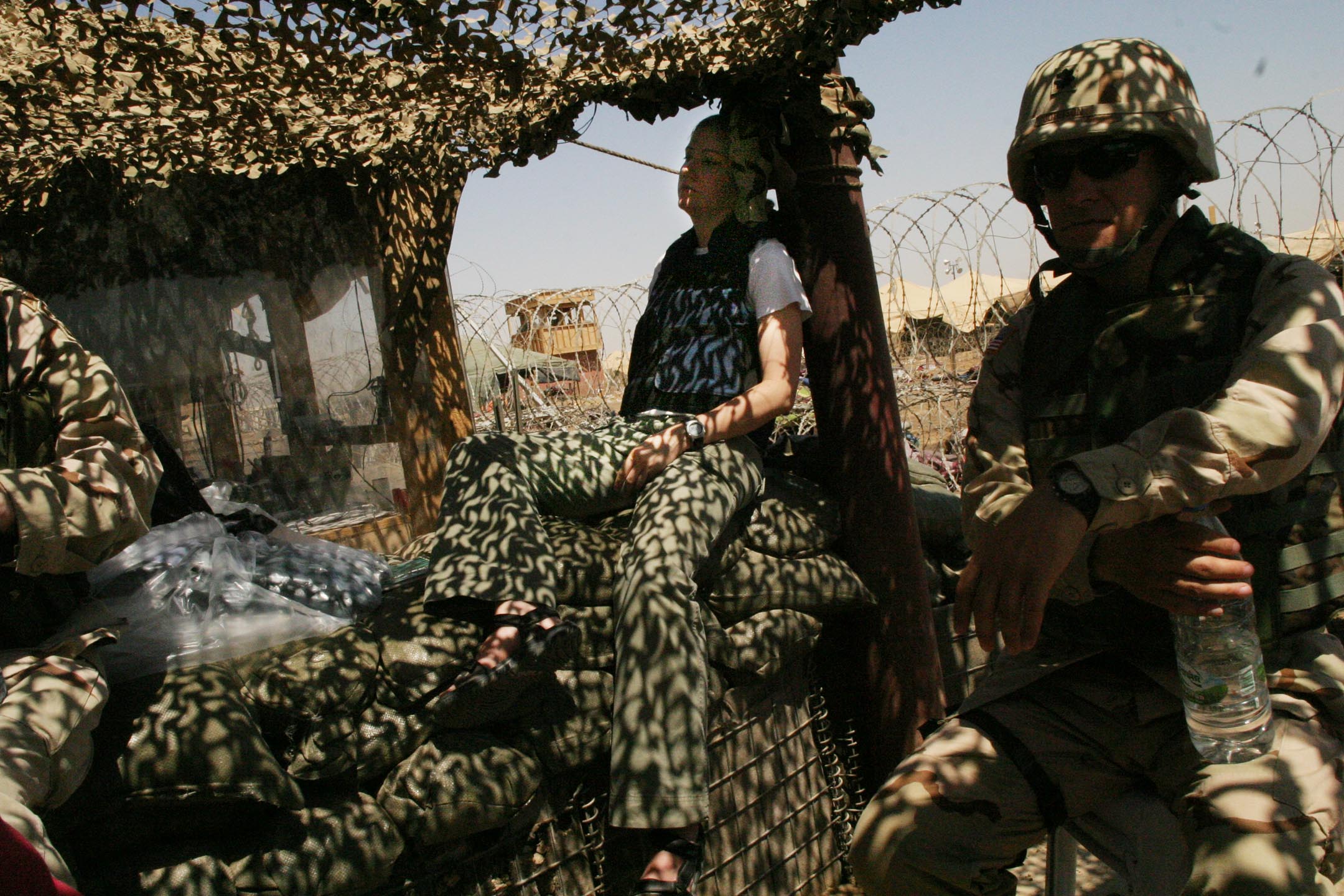My physical world, like many of ours, has become smaller in recent weeks even as my digital world has expanded. I’m working from home, and as an editor, I don’t have to be out reporting in the community to do my job. I can minimize the risks of exposure (for me and my family) to the coronavirus.
Not everyone can. Photographers and reporters are still in the community, working on the frontlines to bring their communities information on a fast-changing news feed, to report on overwhelmed hospitals, the suddenly unemployed, closed schools, citizens staying home and citizens defying orders not to stay home. Some are getting sick. The world has changed virtually overnight, so much so that it’s hard to imagine it ever going back to the way it once was.
The coronavirus story is unlike any most of us have covered in our careers. But something about this also feels familiar to me.
For months at a time when I was reporting for The Washington Post in Iraq, I was stuck in our bureau in Baghdad. It was dangerous for Western journalists to leave our guarded perimeter because we were targets for kidnapping. Iraqis who traveled with us were in danger because of their association with a U.S. media organization. It was safer for our Iraqi correspondents to go alone and they often did, reporting for us much of the time. When I did go out, I was constantly on guard, scanning faces for potential threats, watching vehicles that got too close. I also was afraid of getting blown up.

It wasn’t ideal to cover a story this way, relying on someone else to report from the community where I was holed up in a fortified house with a garden and a swing set. It didn’t feel like journalism without seeing for myself what was happening, without looking at someone while I was interviewing them, watching body language, asking follow-up questions or pivoting based on a response. It was frustrating being in a war zone, itself a danger, and not really being able to cover the people living with the war.
Unlike some of the other major media organizations, The Washington Post gave credit to our Iraqi team members who were out in the streets. They got bylines if they wanted them. We also took their safety seriously and supported them as best as we could with the gear they needed. After the U.S. correspondents left, after the story shifted to another part of the world and our bureau closed, we wrote letters of support for their refugee and immigrant applications. Once they arrived in America, many of us kept in touch, checking up on each other, telling stories of shared experiences, remembering.
Not everyone was physically okay. Not everyone was mentally okay.
PTSD seemed like a tornado that destroyed three houses in a row and left one, miraculously, mysteriously, untouched. I was nearly taken out by post traumatic stress and yet managed to emerge after a year or two of complete misery to a shining sun that awaited me.
There are lessons in this for community newspapers whose videographers and photographers are on the frontlines of the pandemic, for our brothers and sisters in broadcast news whose camera people and reporters are still out covering the coronavirus.
There are lessons for us who are able to work from home even if it’s not always easy within our protected walls.
The lesson is grace.
The lesson is compassion.
The lesson is care.
Managers need to take particular care of their frontline reporters and photographers, supplying the tools they need to protect themselves and sending a message that risk can and should be calculated. They should not ask their photographers and reporters to go inside people’s homes. They should not ask that they get closer than they feel comfortable. No one should feel as if their career depends on them taking risks to tell this story. When reporters or photographers get sick on the job, they should be offered paid sick leave. My own publisher, Don Graham, told me when I left for Iraq the first time that no story was worth my life. I knew he meant it, and I carried his care with me into a different battlefield.
No story is worth exposing our team members to the coronavirus or to putting our communities further at risk even as we pledge–and we should, to stay on the story, to give people information that is vetted and fact-checked and put into context.
But this is hard. Many of us are trying to work while also caring for family members and home-schooling our children. Some of our colleagues are still reporting in the community and worrying about bringing the virus home. Or worry about getting sick, and if they do, how bad it will be.
We need to be compassionate. Based on our individual life experiences, based on our biological make-up, based on whether we have experienced trauma in the past, we will all react differently to the threat of the coronavirus. It’s okay to be scared and frightened; it’s okay to be a little overwhelmed by the uncertainty, and that’s a message we need to send to each other.
The mothers and fathers on our team need extra compassion. The young members of our team who are isolated from friends need our compassion. We need compassion. This is a time to take care of each other, to listen, to pull back on the demands. Your news operation will not crumble if you do. Our news operation in Baghdad did not fall apart when we were kind to each other and cut each other some slack on the days we just couldn’t muster the courage to take another risk. Or when we were tired. Or when we missed home.
I learned grace being a journalist in a war zone, a grace that was hardest to offer myself. It’s not easy to balance this real responsibility we feel to our profession and to our communities with the need to take care of ourselves. We need to remind ourselves that it’s okay to stop to play a round of Candyland with a 3-year-old. We need to know that our supervisors understand, that our colleagues understand. We can be that supervisor. We can be that colleague.
On the other side of this, the world will have changed. But we will have changed, too. That’s a story we will eventually write. But we don’t have to write it today.
A version of this story first appeared in Publisher’s Auxiliary, the only national publication serving America’s community newspapers. It is published by the National Newspaper Association. GJR is partnering with Pub Aux to re-print Jackie Spinner’s monthly “Local Matters” column on our website. Spinner is the editor of Gateway Journalism Review. Follow her on Twitter @jackiespinner.
